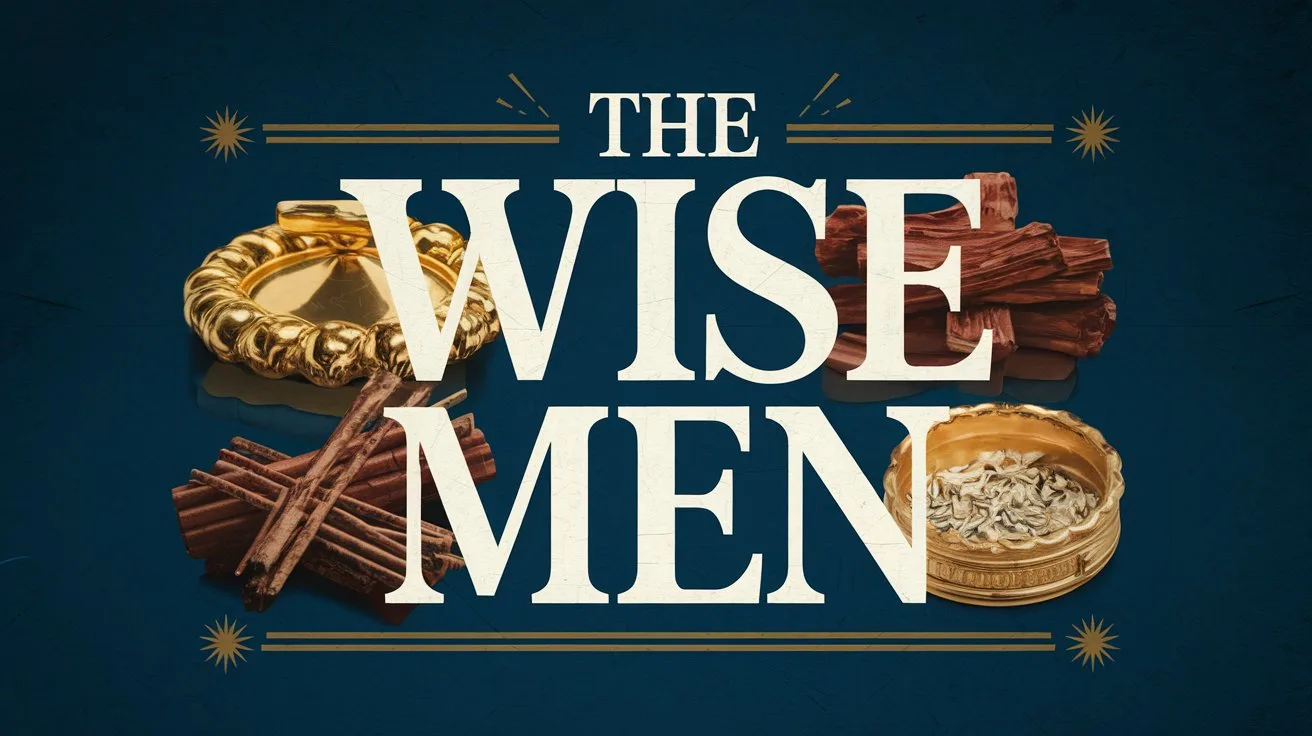In the Gospel of Matthew, we are introduced to the Magi, mysterious wise men from the East who embarked on a journey to find the newborn King of the Jews. This story is rich with prophecy, symbolism, and divine orchestration. Let’s dive deep into Scripture to uncover who the Magi were, the significance of the gifts they brought, and how their journey was guided by God’s Word.
Who Were the Magi?
The term “Magi” comes from the Greek word magoi, which refers to a group of wise men, astrologers, or scholars. These men were experts in astronomy, dream interpretation, and ancient texts. The Magi were likely from Persia or Babylon, areas influenced by Jewish teachings during the Babylonian captivity. Daniel, a prophet who held a high position among the wise men of Babylon, would have left a significant legacy. In Daniel 2:48, we read:
“Then the king promoted Daniel and gave him many great gifts; and he made him ruler over the whole province of Babylon, and chief administrator over all the wise men of Babylon.”
Because of Daniel’s influence, the Magi would have been familiar with Jewish prophecies concerning the Messiah. The Bible does not specify how many Magi visited Jesus; traditionally, it is assumed there were three because of the three gifts presented. However, Scripture does not give a number. It is likely there were more, as a large entourage would have been expected for such a significant and dangerous journey.
How Did the Magi Know About the Star?
The Magi were well-versed in the ancient prophecies and had an extraordinary knowledge of the night sky. In Matthew 2:2, they say:
“Where is He who has been born King of the Jews? For we have seen His star in the East and have come to worship Him.”
This was not a typical star. It was a supernatural sign, a divine light guiding them directly to Jesus. The Magi’s understanding likely came from their study of prophecies such as Numbers 24:17, spoken by Balaam:
“I see Him, but not now; I behold Him, but not near; A Star shall come out of Jacob; A Scepter shall rise out of Israel.”
This prophecy foretells a star associated with a coming king. The Magi, influenced by Jewish teachings and perhaps by Daniel’s own prophecies (Daniel 9:24-27), would have recognized the significance of this star as heralding the birth of the Messiah. It was a light sent by God to announce the arrival of the true King.
The Gifts of the Magi: Gold, Frankincense, and Myrrh
Upon arriving at the house where Jesus was, the Magi worshiped Him and presented three significant gifts: gold, frankincense, and myrrh (Matthew 2:11). Each gift holds prophetic meaning and reveals deep truths about the nature and mission of Jesus.
- Gold: Gold was the gift for a king, symbolizing royalty and divinity. Throughout Scripture, gold is associated with kingship and wealth. In 1 Kings 10:10, the Queen of Sheba brought gold as a gift to King Solomon. By presenting gold, the Magi acknowledged Jesus as the King of kings (Revelation 19:16), recognizing His authority over all creation.
- Frankincense: Frankincense is a fragrant resin used in worship and was a key ingredient in the incense burned in the Temple (Exodus 30:34-38). This gift symbolizes Jesus’ priestly role as our High Priest who intercedes for us before God (Hebrews 4:14-16). It represents worship and prayer, pointing to Jesus as the divine Mediator between God and humanity.
- Myrrh: Myrrh was a costly spice used in anointing oils and for embalming. It was associated with death and burial, as seen when Nicodemus brought myrrh to anoint Jesus’ body after His crucifixion (John 19:39). The gift of myrrh foreshadowed Jesus’ sacrificial death, indicating that this King came to die for the sins of the world. Myrrh symbolizes the suffering Servant who would lay down His life as a ransom for many (Mark 10:45).
The Magi’s Encounter with Herod
When the Magi arrived in Jerusalem, they asked, “Where is He who has been born King of the Jews?” (Matthew 2:2). This question troubled King Herod, who saw the birth of another king as a threat to his power. Herod summoned the Magi secretly, asking them to report back once they found the child, pretending he wanted to worship Him as well (Matthew 2:7-8).
However, the Magi, discerning Herod’s true intentions, did not comply. After they found Jesus and worshiped Him, God warned them in a dream not to return to Herod. They departed for their own country by another route (Matthew 2:12). This act of obedience preserved the life of the Messiah and thwarted Herod’s evil plan, revealing the Magi’s commitment to God’s guidance over human authority.
Prophecy Fulfilled: Knowing the Timing and Location
The Magi’s journey was guided by prophecy. The location of the Messiah’s birth was foretold in Micah 5:2:
“But you, Bethlehem Ephrathah, though you are little among the thousands of Judah, yet out of you shall come forth to Me the One to be Ruler in Israel, whose goings forth are from of old, from everlasting.”
The timing of the Messiah’s arrival was likely understood through Daniel’s prophecy of the “Seventy Weeks” (Daniel 9:24-27), which provided a clear timeline pointing to the coming of the Anointed One. The Magi, well-versed in these prophecies, recognized the significance of the time and the appearance of the star.
My Final Thoughts
The account of the Magi is a testament to the faith and obedience of those who earnestly seek the Lord. They traveled great distances, guided by prophecy and divine revelation, to find and worship the true King. Despite Herod’s deceitful intentions, the Magi chose to obey God rather than man, preserving the life of the Savior.
The Magi remind us that Jesus is not just a king among kings; He is the King of kings and Lord of lords (Revelation 17:14). He is the true Light of the world, and those who seek Him will find Him, just as the Magi did.
As we reflect on their journey, may we be inspired to seek Jesus with the same diligence and to worship Him with all our hearts, recognizing Him as our King, our High Priest, and our Savior.





 Get the book that teaches you how to evangelize and disarm doctrines from every single major cult group today.
Get the book that teaches you how to evangelize and disarm doctrines from every single major cult group today.